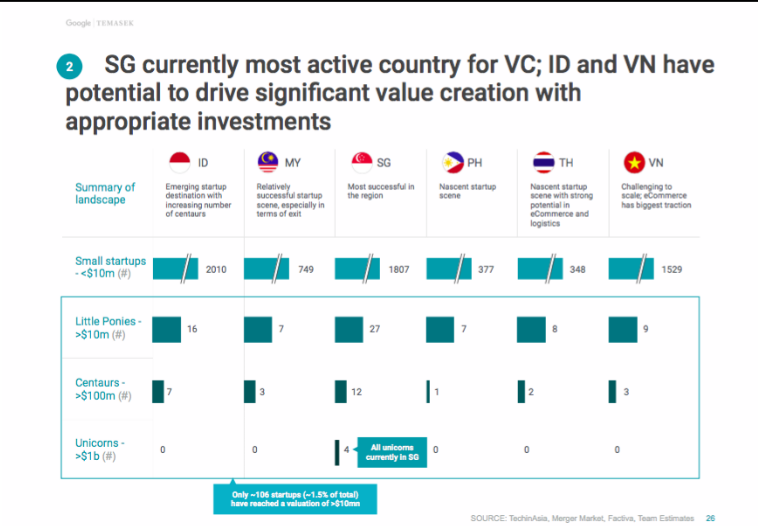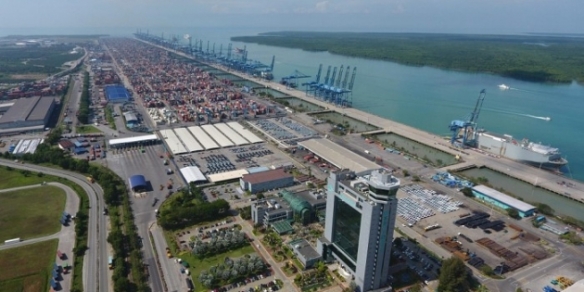Malaysia’s digital economy on a slow and steady incline: Page 2 of 3
By Anushia Kandasivam February 7, 2017
The right kind of entrepreneur
Entrepreneurs are certainly a core ingredient of a dynamic startup ecosystem, but they must have the right skills to benefit the economy. The ability to ideate and create a product is not enough; instead, the way entrepreneurs harness and put together available resources to solve a problem and meet a real need is far more essential.
“These are the people we need and must build,” says Ashran, adding that this is what the recipe currently lacks.
The government has, however, been attempting to create opportunities and an environment that encourages this kind of entrepreneur. Unfortunately, at the moment it seems to be stuck on focusing on results instead of true market impact and innovation. Ashran explains that entrepreneurs who make even an incremental amount of money are considered successful entrepreneurs, and making money is a measurement of success.
“Profit is important but why then are we not breeding more successful entrepreneurs? We aren’t because all we are doing is pushing them to make that profit instead of turning their focus to solving the problem and making sure their solution – their business – is sustainable. This is the foundation that will enable them to have a long-term impact on communities and the economy,” he says.
Performance expectation is a classic Malaysian trope, as can be seen in the fixation on the belief that commercialisation of innovation is the only proper path and measure of success, and the lamentation of the lack thereof.
While it is true that the rate of commercialisation in the country is sluggish, Ashran points out that if Malaysians are able to shift their mindsets to the process instead of the results, the rest will fall into place. This means that entrepreneurs must be provided the tools to enable sustainable businesses and the skills to harness these tools.
“We love creating things but we’re not necessarily looking at solving problems and then making sure we can monetise the solutions. I think the more we do that, the more solid Malaysia will be in its economic growth.”
Achieving change
Such a paradigm shift will not be easy to accomplish. To get the ball rolling, MaGIC is utilising the Blue Ocean Strategy approach. According to Ashran, MaGIC is aiming to “deliver it in a manner that entrepreneurs can understand” and that arming them with this tool will make a stark difference to how their businesses are conceptualised and run.
He does, however, clarify that MaGIC is looking into using a blend of Blue Ocean Strategy, design thinking and business design canvas tools to strengthen the proposition. The aim here is to provide entrepreneurs with tools that will enable them to be creative and innovative. While Malaysian entrepreneurs have the drive and aspiration requisite for success, creativity and innovation are lacking and without these, the recipe is incomplete.
MaGIC has acquired global rights to the Blue Ocean Strategy online training programme in English and Bahasa Malaysia and is currently looking into the most cost-efficient way to deliver the programme. Once the programmes are running, MaGIC will see participation and completion of the online training as commitment and use that to funnel promising entrepreneurs into further accelerator programmes.
In a market such as Malaysia’s, it is essential that these programmes be inclusive, which is why it will be delivered in two languages, and that delivery is sliced at different layers of the market so that each segment gets exactly what they need.
Ashran explains that MaGIC is attempting to change the narrative and shift the fierce focus on technology for its own sake to efficient and successful adoption of technology that is appropriate for each different community. “I think this method of message delivery is important to make sure that this shift happens. Otherwise, while aspirations are great, people still can’t relate to what really needs to be done to solve communities’ problems.”
MaGIC is starting from the basics by getting entrepreneurs to innovate differently – changing their business model or figuring out a successful strategy in a saturated market, for example - even before they think about new technologies or disruption. Once the seed of innovative thinking is planted, growing new ideas with the help of the tools that MaGIC provides will be easier.
MaGIC has already put out feelers for its online training programme and has received very good response in terms of registrations, though Ashran admits that the real proof will be in how many people actually do participate and complete the programme.
“I think if we are able to implement this on a large scale, we are on to a good start. The government should provide these basic tools for entrepreneurs. At the same time, the people must take advantage of the opportunities these platforms and initiatives provide. In this way, when the government is putting in a ringgit, the entrepreneur is multiplying it, and then the economic growth of the country is more meaningful,” he says.
Next page: The measure of success



